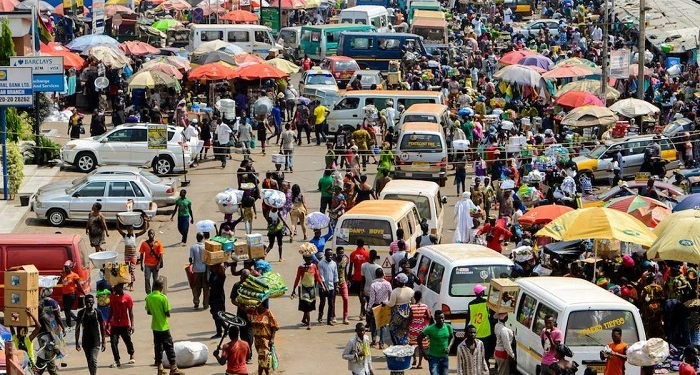Ghana’s Economy to expand by 4.8% in 2025 – Report
While Ghana’s economy is poised for a rebound in the coming years, the country faces challenges within the broader context of declining GDP growth rates in SSA.
- Advertisement -
Ghana’s economy, is set to experience a rebound in economic growth, with a projected expansion of 4.8% in 2025. This positive outlook comes as a welcome development following a forecasted GDP growth rate of 2.9% in 2024, highlighting the country’s resilience and potential for sustained progress. However, the road to recovery has not been without its challenges, as evidenced by the 1.6% GDP growth rate expected for 2023, a significant decline from the 3.2% recorded in 2022.
The 2023 Global Economic Prospect report sheds light on the factors contributing to the reduction in Ghana’s GDP growth for the year. Adverse economic shocks, high and persistent inflation, tightening global financial conditions, and domestic policy tightening have all played a role in dampening economic activity. Additionally, heightened external economic headwinds have further exacerbated the challenges faced by the Ghanaian economy.
- Advertisement -
On a broader regional scale, the Global Economic Prospects report highlights the declining GDP growth in Sub-Saharan Africa (SSA). The region is expected to experience a further decline to 3.2% in 2023 before a modest pickup to 3.9% in 2024. This challenging outlook extends beyond the major regional economies, as various countries face their own set of obstacles. South Africa, for instance, is projected to witness a slowdown in growth to a mere 0.3% in the current year, primarily due to widespread power outages that have severely impacted economic activity and contributed to the persistence of inflation. Similarly, Nigeria’s growth rate is expected to remain barely above population growth, posing challenges in mitigating extreme poverty.
- Advertisement -
The downgrades in economic outlook extend beyond growth rates, encompassing factors such as the elevated cost of living, which has restrained private consumption, and tighter policies that impede investment in many countries. These issues collectively contribute to a subdued recovery and impede the region’s progress. Weakening domestic vulnerabilities, coupled with tight global financial conditions and weak global growth, further complicate the economic landscape in SSA.
Of particular concern is the projection for per capita income growth in SSA. The forecast indicates an average growth rate of less than 1% per year over the forecast horizon. In over a fifth of the region’s economies, including the three largest, average per capita income growth in 2023-24 is not expected to exceed 0.5%, with negative growth anticipated in over a tenth of the countries. Consequently, the prospects for poverty reduction in the region remain bleak, with nearly 40% of SSA’s population residing in countries with lower per capita incomes in the coming years compared to 2019.
- Advertisement -
As Ghana aims to navigate these challenging regional dynamics, the projected rebound in economic growth presents an opportunity to propel the country’s development agenda forward. Policy measures that address inflationary pressures, enhance domestic resilience, and attract investment will be crucial in supporting Ghana’s economic recovery. Furthermore, collaboration with international partners and the implementation of robust reforms will be essential in driving sustained growth and creating a conducive environment for poverty reduction efforts.
While Ghana’s economy is poised for a rebound in the coming years, the country faces challenges within the broader context of declining GDP growth rates in SSA. Adverse economic shocks, inflation, and tightening global financial conditions have weighed on Ghana’s economic performance. The regional outlook reflects a complex landscape, with various countries struggling to achieve significant growth and reduce poverty.
Addressing these challenges requires a comprehensive approach, encompassing sound economic policies, targeted reforms, and collaboration among stakeholders. Ghana’s resilience and commitment to sustainable development will play a pivotal role in shaping its economic trajectory and contributing to regional prosperity.
Source: Norvanreports
- Advertisement -


